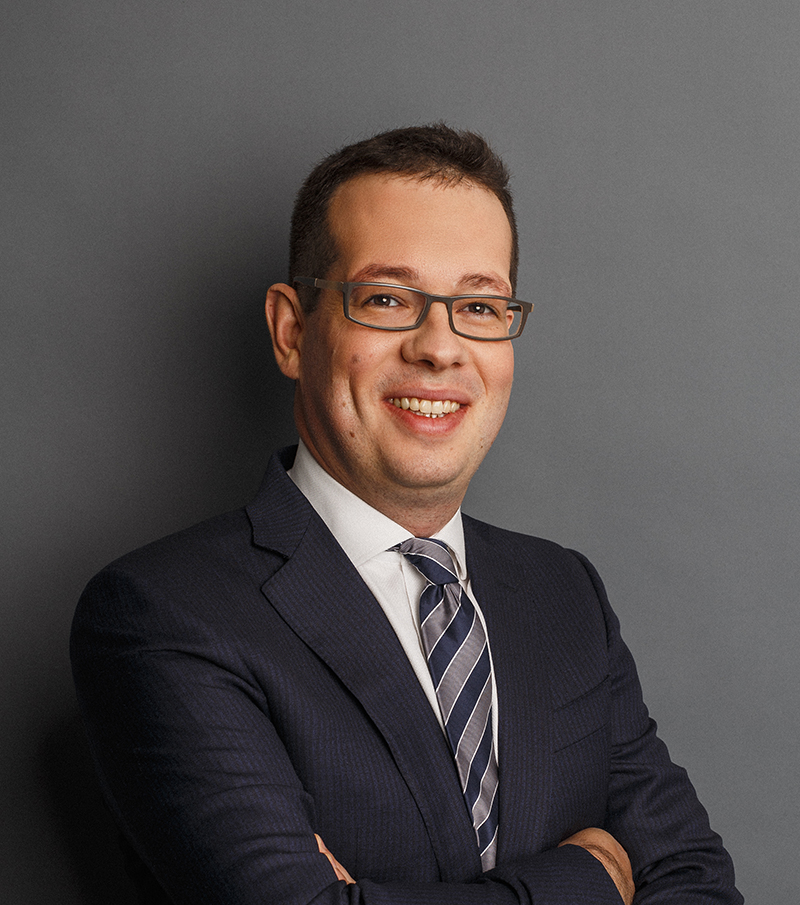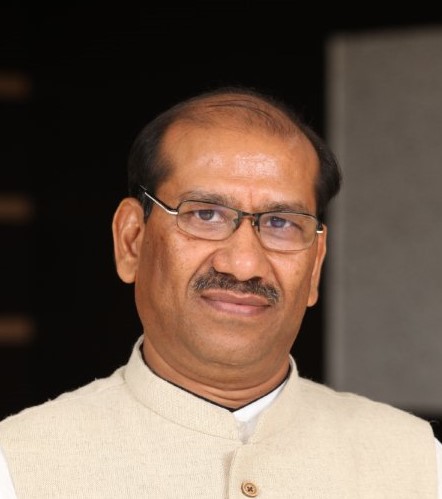Talking Heads: Kreston Global: Sustainability Drive
Kreston Global: ‘Helping businesses unlock their sustainability aspirations’
As ESG and sustainability issues become ever more critical for businesses and people across the globe, particularly in the wake of the record temperatures we have been seeing this year so far, there is no doubt that we must take action to manage our impact on our planet as well as understand how we can all become businesses that are a force for good in the world.

As our Kreston Global CEO, Liza Robbins, commented recently when talking about our own sustainability drive, “Businesses need to be part of thriving communities to succeed, and there is an increasing realisation that thriving communities need long term environmental sustainability to succeed.” She added, “I am proud of the profession I represent; in its innovation and in its potential to help businesses unlock their sustainability aspirations. As global sustainability strategies continue to mature, we as a sector will be here to help bring them forward.”
At Kreston we are looking closely at this and, in Kreston Week 2022, when we recognise and promote the diversity and talent we have across our many members, we asked experts from our firms around the world who have begun to develop approaches to sustainability, to share their knowledge with us. Our experts included: Koh Wee Kwang, Kreston ACA PAC, Singapore (KWK); Christina Tsiarta, Kreston ITH, Cyprus (CT); Laurent Le Pajolec, Exco Poland (LL); and Mahendra Rustagi, Kreston SNR, India (MR).
Why is a focus on ESG and Sustainability so important for your firm?
KWK: ESG and Sustainability is important because this is a generational challenge. Our firm believes in the importance of being environmentally and socially responsible corporate citizens.

Koh Wee Kwang
Kreston ACA PAC, Singapore
LL: Our firm was always a family one which had grown and over time – we needed to introduce more structure, and so focussed on developing our values to help us also work on larger more challenging projects.

Laurent Le Pajolec
Exco, Poland
CT: Right from the start,Kreston ITH has focused on its corporate social responsibility, by supporting local not-for-profit organisations such as animal shelters, family shelters, cancer support associations as well as putting employee wellbeing as a priority – we are the first audit firm in Cyprus to be certified for two consecutive years as a Great Place to Work. This commitment has recently evolved beyond just corporate philanthropy to identifying and managing our ESG impacts. We are committed to operating and growing sustainably and helping our clients do the same. Therefore, this past year we have decided to invest in the ESG service line by bringing aboard experts in ESG, to support us internally, as well as externally with our clients.

Christina Tsiarta
Kreston ITH, Cyprus
MR: India made many commitments during COP 26, including Net Zero by 2070, reducing carbon emissions and increasing provision of renewable energy to 50% by 2030. The Government of India has made it mandatory for the top 1000 listed companies to issue Business Responsibility and Sustainability Reports, with plans to widen this as soon as possible. We see it as critical that advisory and accounting firms are able to help clients manage their ESG and reporting commitments, especially as banks and other investors are now making lending/investment decisions on the basis of the Environmental and Social impact a business has / will have.

Mahendra Rustagi
Kreston SNR, India
What is the ESG/ Sustainability work that your firm is doing and when did it begin?
KWK: We started our journey in 2017, when the Singapore Exchange (SGX) announced its sustainability reporting framework for the SGX listed companies and we realised the importance of ESG for Singapore and for our clients. We have been actively engaging the Board of Directors for the SGX companies on the topic of Sustainability Reporting. Additionally, I have spoken on various platforms, including ISCA (the institute of Singapore Chartered Accountants), the Singapore Accountancy body, Duns & Bradstreet, Nanyang Technological University and etc, to educate the general public on the importance of sustainability and climate change. Within our firm we hold regular updates for our staff at all levels on the topic of sustainability reporting and climate change.
I am currently a member of the ISCA’s Sustainability and Climate Change Committee (SCCC). Refer to www.isca.org.sg for the terms of reference of SCCC. The firm’s HR policies are aligned with SDG 3 (Gender Equality), SDG 8 (Decent Work and Economic Growth and SDG 10 (Reduced Inequality). We believe in building a vibrant firm culture by assimilating diversity and providing all people with equal opportunity regardless of gender, race, language or religion. This is evidenced by our strong staff retention rate.
LL: The pandemic made us more focussed on the principles of sport, health, citizenship, ecological focus and family – the need to do things differently, respecting family, health and wellbeing and putting something back into the community. Like many others, we were also facing a struggle to recruit so it made sense to change the way we were doing things. Oh, and I also became a father – which had a huge impact on me.
A lot of what we did was creating more focus around the many little things we were already doing: looking at our carbon footprint, supporting a climate-change charity, “Time for the Planet”, creating a structured wellbeing programme for staff, and also creating an employee-wide focus on good citizenship and support for community projects. On top of this, we are working on company-wide projects such as B Corp certification, instituting a volunteer platform and staff engagement processes.
CT: Our ESG/sustainability work focuses on strategy development and implementation, reporting and due diligence. We have a 4-step process to embed sustainability within an organisation, starting with a gap analysis across various ESG/sustainability issues. We then identify which areas of need are priorities by engaging the client’s stakeholders in a materiality assessment. The next step is to produce an ESG/sustainability strategy tailored to the organisation, with actions and KPIs agreed with the client. Once the strategy is in place, we support our clients in reporting to consolidate and communicate their ESG commitment, actions and performance. The methodology we follow for strategy development and for reporting is specific to the client, their industry and the applicable legislation. Examples of such legislation in the EU are the Non-Financial Reporting Directive (NFRD), the Corporate Sustainability Reporting Directive (CSRD), the Sustainable Finance Disclosure Regulation (SFDR) and the EU Taxonomy Regulation. Many voluntary standards and reporting frameworks exist, which can be used on their own or in combination. Examples include the Global Reporting Initiative (GRI), ISO 26000 on social responsibility, the UN Sustainable Development Goals (UN SDGs), the Science-based Targets, the Sustainability Accounting Standards Board (SASB), and more. The ultimate goal is achieving net-zero greenhouse-gas emissions from an organisation’s direct and indirect impacts.
MR: We started working on this at Kreston SNR about a year ago, when our Chairman, Dr JP Gupta, was made Chairman of the Environment Clearance Committee of the Government of India. This committee advises the government on the granting of environment clearance for any new projects and also for any expansion of existing activities. Dr Gupta is deeply involved in commerce and industry and has been informally advising many businesses on the E and S part of ESG for some time, assisted by myself. We also partnered with the International Climate Summit 2021 (ICS 2021) held in New Delhi with over 35,000 delegates where we looked at “Empowering India’s Green Hydrogen eco system”, as well as being involved in the 2022 ICS. As a result of this investment, we now have a team of over 5 ESG professionals advising businesses on this area.
How has it been received by your clients and your people?
KWK: Certainly for our people I think our focus on Sustainable Development Goals
(SDG 3, 8 and 10 as stated above) has made a big difference which is reflected in our strong retention figures. Also, we consistently receive a score of 4 to 4.5 out of 5 from glassdoor.sg. And this is also commented on by clients and prospects when we pitch competitively.
LL: We were and still are really conscious that we aren’t seen as just “greenwashing”. We have carefully developed our strategy to this “whole company” approach and spent time and effort consulting with all our people before we rolled it out. I think that’s the key to why it is working so well.
CT: Unfortunately, the business world in Cyprus (and other parts of the world) still lags behind in its mentality and understanding of ESG and sustainability, but we could see this was a great opportunity for a cultural change. Our clients have really appreciated the many benefits they have seen through improving their operations and most importantly, changing their mentality to become more sustainable. For example, the reduction of energy consumption and waste production has resulted in decreased operating costs for many clients, others report being able to attract and retain high-calibre staff and clients as more and more seek evidence of this as a corporate priority, while other clients have been able to improve their stakeholder relationships through increased transparency and accountability, and have increased their overall brand value. We can see that our people are proud that they work for an organisation that has top-down commitment to becoming sustainable and to helping our clients do the same. Involving them in the process and allowing them the freedom to implement their own actions has boosted their morale and also helped them feel ownership and be more driven to contribute to our company goals. Much like our clients, going through this process has also helped us identify areas for improvement internally, resulting in decreased costs and has helped us improve our relationship with our supply chain and attract new clients.
MR: We have a number of clients where we are developing ESG frameworks and Sustainability reporting and so it’s fair to say that our clients have been extremely enthusiastic and quick to turn to us for help and advice.
What challenges do you think exist for the wider sector in this area?
KWK: I can see a dichotomy, a generational gap between on the one hand Gen X and the baby boomers and on the other the younger millennials and Gen Z – this can lead to a misalignment of values. For example, while millennials place significant importance to the sustainability and climate change agenda, the Gen X and the baby boomers are less inclined towards the topic. If the Board of Directors fails to see to the importance of sustainability and climate change, it will definitely affect their ability to attract and retain the younger talents and thus survival. What gets measured gets done. Organisations have to move away from mere financial performance and start to link senior executive remuneration to ESG performance, which most organisations find difficult to do.
LL: I feel we are facing many challenges, and we have to respond really strategically in order to make sure it is not just a cosmetic change. Our younger employees and future generations are watching us – we have to respond in a global way to reduce our carbon footprint, not just plant trees, to take better care of our planet and not just put up bee houses. We need to inform and educate ourselves and our clients about ESG reporting and find skilled people to collaborate with to help us in this mission.
CT: There are many challenges that organisations face in this area. One very important challenge is the lack of knowledge and understanding of what organisations should do. The sheer volume of information widely available on sustainability/ESG issues alone can be confusing, starting with the acronyms. Combine that with the growing volume of legislation and the many voluntary standards and reporting frameworks available, and organisations have a hard time deciphering how to get started. This is where we like to feel we can support clients to identify their ESG challenges, set goals, improve performance and adapt corporate culture to be more sustainable. We see sustainability as a journey. It starts with small steps in the right direction, and ultimately becomes a way of being.
MR: There is a lack of overall awareness about ESG worldwide and in India which the Government is trying to address with lots of public awareness programs. There are also few trained ESG professionals, although many professional bodies have been quick to announce courses / certificate programs but it will take time to get people through these. We lack central frameworks and reporting standards, again this is a work in progress that is enabled by ESG service providers, who can help interpret the government’s BRSR reporting framework which is quite elaborate.